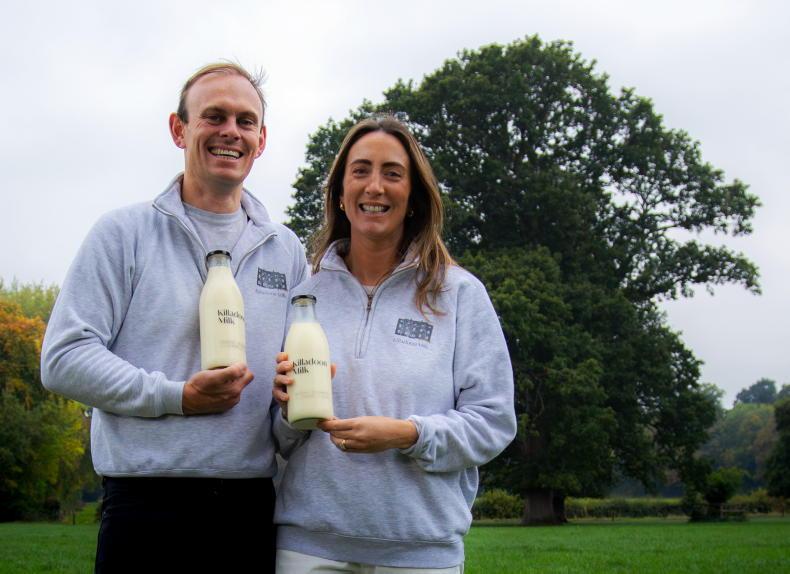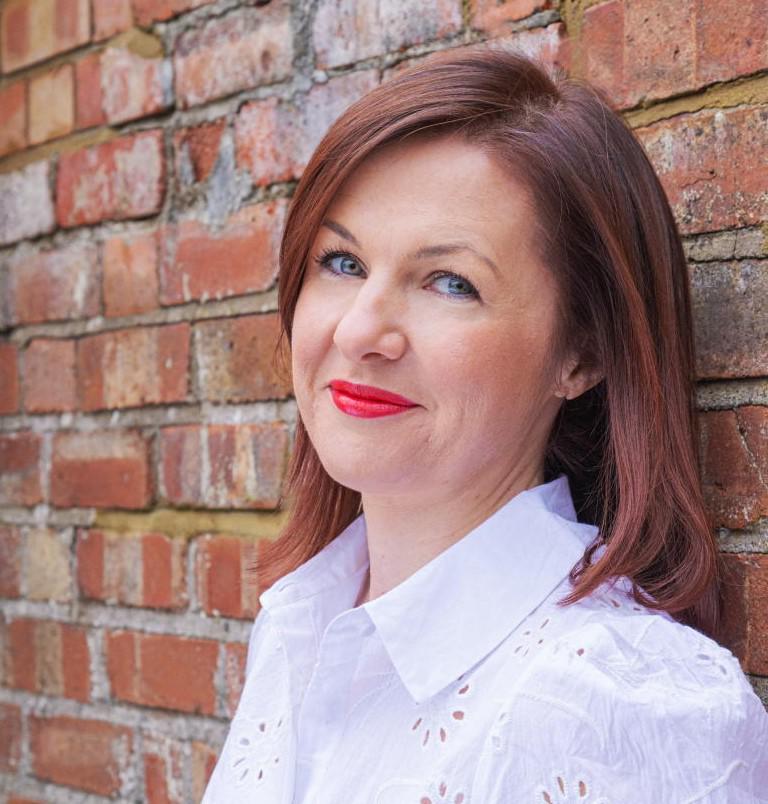For Irish food producers, chefs, buyers, food writers and hospitality professionals, all roads lead to the seaside town of Dingle, Co Kerry this weekend. The annual Blas na hÉireann awards (which coincide each year with the Dingle Food Festival) are taking place on 3 October, with 400 finalists nervously setting up camp as they anticipate the results.
For Irish food producers, chefs, buyers, food writers and hospitality professionals, all roads lead to the seaside town of Dingle, Co Kerry this weekend.
The annual Blas na hÉireann awards (which coincide each year with the Dingle Food Festival) are taking place on 3 October, with 400 finalists nervously setting up camp as they anticipate the results.
Who will walk away with a much-coveted bronze, silver or gold ranking for their product? Who will emerge victorious as county – or, the pinnacle, supreme champion of 2024?
For many consumers, the Blas na hÉireann awards represent the crème de la crème of Irish artisanal food. For those who look at labels when they do their weekly shop, the Blas symbol might hold as much trust and esteem as the Bord Bia Quality Assurance Scheme. It indicates the product has been rigorously taste-tested by a plethora of food-focused judges.
It can be a great boost to producers to be shortlisted for an award – but costs come along with being involved, as well.
First of all, there is an entry fee (for the Blas na hÉireann awards, it costs €90 plus VAT for those entering under their own brand and €180 plus VAT for those entering as a private label, though there are early bird discounted prices).
Secondly, producers need to organise product samples for blind tasting. There is also the cost of attending the awards, if shortlisted. Fuel, accommodation, dining out – all of these things need to be factored in. Do the benefits outweigh the costs?
Key to longevity
Fallon Moore is part of the organising team behind the Blas na hÉireann awards. Now in its 17th year, she tells Irish Country Living that the key to its longevity is ensuring the event is of professional benefit to the many producers who attend each year, and a big part of accomplishing this has been their willingness to change with the times.
“For example, 17 years ago we wouldn’t have had a category for hot sauce,” she says.
“This year, for the first time, we’re seeing a category for fermented beverages, because we’re seeing consumers’ tastes change and producers are really diversifying in what they are doing. We try to respond to the changes in the food on shelves and in people’s baskets.”
The organisers, including founder Artie Clifford, feel a huge amount of responsibility to ensure the costs of participating in the Blas na hÉireann awards are worthwhile for small producers.
If these opportunities are being put in front of an attendee, we need to be able to deliver for them – not just in the profile of the awards
Artie, once a producer himself, founded the awards because he was seeing Irish producers go abroad for recognition. He felt they should be recognised here, in Ireland.
“In one of our earlier years, we had a producer come to us saying she was quite nervous about everything going well because she had a potential contract with a major retailer,” Fallon recalls. “We came away from that conversation saying, ‘We have a massive responsibility here to the producers.'
“If these opportunities are being put in front of an attendee, we need to be able to deliver for them – not just in the profile of the awards, but in the education and networking opportunities we ary to provide.”
Organisers have tried to keep entry fees stable over the years as they are conscious of the time and costs to the producer.
“If producers get to the finalist stage, we want them to be able to come down to Dingle for those few days,” Fallon says. “Once they’re here, nothing is ticketed. We want people to make every minute of their time work for them.”
One of the ‘auldies’

Florrie Purcell owns and operates The Scullery in Nenagh, Co Tipperary. / Philip Doyle
Florrie Purcell operates The Scullery in Nenagh, Co Tipperary. Established in 2004, Florrie’s business produces a wide range of sauces, chutneys, jams and Christmas puddings.
Aside from her own brand, she also supplies Ireland’s largest retailers with private label products. She has been participating in the Blas na hÉireann awards for the past 16 years and says her involvement in the wider Blas community has been beneficial.
“I didn’t go the first year [it was on],” she recalls, smiling. “I was a bit busy having my son. But I remember everybody talking about it – there was such hype. I got in touch with the organisers soon after the first year and have been going ever since. I’m one of the ‘auldies.'
“Back then, the word ‘artisanal’ was beginning to mean something,” she continues. “Supermarkets were just opening their doors to artisanal producers like myself. I think Blas had a lot to do with that. If they feel you’re able for the volume, they won’t hesitate to put your name forward to retailers.”
The team at The Scullery have won many awards over the years, including several Blas na hÉireann awards, and 2024 is looking to be no different as they are shortlisted for their Country Relish. Win or lose, Florrie is there for the craic; to reunite with old friends and for the networking opportunities.
“It’s not just a weekend event, it’s our annual holiday,” she says, laughing.
“The Blas organisers are our go-to 365 days of the year; they’re there supporting us. They have done work that most small producers couldn’t afford – they have that infrastructure in place, and they connect us with the right people.”
First timers

Marty and Vanessa Donovan own and operate Killadoon Milk in Co Kildare. Their Jersey cross whole milk is a finalist in the Blas na hÉireann awards and this will be their first year attending.
Unlike Florrie, Vanessa and Marty Donovan will be attending the awards for the first time this year. Their submitted product, Killadoon Whole Milk, has been shortlisted.
The couple’s single-estate milk is produced by their Jersey cross herd on their family farm in Co Kildare.
The farm converted to dairy from beef and tillage in 2019. In October 2023, the couple invested in milk vending machines which they installed in specialty food shops like Fallon & Byrne in Dublin, followed by Avoca Dunboyne and select SuperValus, also in the Dublin region.
They sell their whole milk and a range of flavoured milks in glass bottles, meaning no single-use plastic is used within their product line.
“We milked our first cows in 2020,” says Marty. “That was in the middle of the pandemic, and this was when we first saw others installing milk vending machines. It didn’t suit to have a vending machine on the farm or at the entrance, but being so close to Dublin, we felt well placed to supply that market.”
Marty and Vanessa say they’ve gotten good support for their product, both from retailers and the general public.

Killadoon Milk is produced on the Donovan family farm in Celbridge, Co Kildare.
“It’s getting great feedback,” Vanessa says. “We did the Big Grill Festival [in August] and the tastings went really well – even just the plain milk. It’s a firm favourite with its natural creaminess.”
Martin says their involvement with Blas na hÉireann is already opening doors for them as a talking point when they are out meeting customers and doing tastings. They have placed Blas stickers on their vending machines to let people know they are 2024 finalists.
“It’s a well-recognised symbol for the Irish consumer, even just when I’m shopping myself I notice the Blas symbol,” Vanessa adds.
“You also get that feeling you’re supporting Irish, and buying a local, high value product. We entered to help build our brand and increase awareness and just as a test to ourselves – would we make the final? And so we are delighted to be going. We’ll see, now, how we do in Dingle!”
Do symbols lead
to sales? 
Annie Dunne is the founder of the art of GRATE Food, a food innovation consultancy service.
One of the best things about winning an award is being able to proudly place the symbol on your product label. But does having an award symbol lead to an increase in sales or other benefits?
Bord Bia’s 2021 Quality Mark assessment includes research on the Blas na hÉireann and Great Taste Awards symbols. It shows that the Blas symbol is consistently recognised by approximately 30% of Irish consumers, and most likely to be recognised by ‘conscious consumers’.
Annie Dunne is the founder of the art of GRATE Food, a food innovation consultancy service, and she is involved in the Blas na hÉireann awards each year.
With over two decades of experience in food manufacturing and retail in the UK and Ireland, she specialises in guiding food businesses through new product and brand development.
She tells Irish Country Living that applying for awards are valuable to Irish food brands in many ways. She also says the symbol itself holds real, tangible value to Irish producers.
“These awards provide invaluable exposure; opening doors to industry buyers, media, and new customers,” she says. “It’s not just about winning — it’s about having your product evaluated alongside the very best in Irish food and drink, which brings credibility and recognition.
“Many winners experience a noticeable sales boost and increased brand recognition.”
Read more
Special report: lifting the lid on the Hot School Meals Programme
Perfect time for Irish lamb as it reaches ‘full flavour potential’





SHARING OPTIONS: